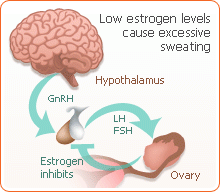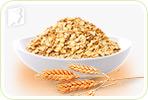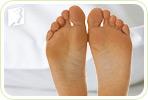
Night sweats affect most women during menopause or postmenopause. For those unaware of the symptom and the possible methods of dealing with it, night sweats can be quite unsettling. Being adequately informed is vital to identifying, managing, and thus minimizing the unpleasantness that can be caused by night sweats.
What Are Night Sweats?
Night sweats, also known as nocturnal hyperhidrosis, are episodes of nighttime sweating that can vary in their frequency and intensity. While sweating itself is perfectly natural and necessary for keeping cool, night sweats can be so intense as to disrupt sleep and affect the daily routine of the sufferer. In addition to profuse perspiration, night sweats are identified by some of the following symptoms:
- Feelings of sudden and intense heat
- Irregular heartbeat
- Chills
- Headache and nausea
Night sweats aren't classified as a sleep disorder; however, when severe, these episodes will often disturb sleep patterns dramatically.
What Are the Causes of Night Sweats?

One of the principal causes of night sweats in women is the hormonal changes resulting from menopause. A decline in the level of the hormone estrogen causes the hypothalamus - the temperature-regulating area in the brain - to incorrectly sense that the body is overheating. Signals are then sent to rapidly cool the body. This is what produces the hot flashes or night sweats that disturb sleep and cause excessive perspiration.
While hormonal imbalance is identified as the most common cause of night sweats, it should be noted there are other medical factors that can also cause these episodes, such as infections.
How Can I Manage Night Sweats?
Terrycloth pillow cases and bed sheets are now easily available to help absorb sweat and avoid clamminess.
Given that night sweats are linked with decreased levels of estrogen in a woman's body, the most important step in managing this condition is to ensure that the body is able to maintain stable hormone levels. A fit and healthy body, sustained by a balanced diet and regular exercise routine, plays a vital role in controlling night sweats. Staying at a healthy weight is also important. Healthy lifestyle choices can be supplemented with alternative medicines and medical treatments, which for many will provide the most effective means of dealing with night sweats.
Sources
- Boston Women's Health Collective. "Hot Flashes, Night Sweats and Sleep Disturbances". Our Bodies, Ourselves, 2006.
- National Health Service UK. (2015). Hot flushes: how to cope. Retrieved December 23, 2015, from http://www.nhs.uk/Livewell/menopause/Pages/hot-flushes.aspx
- Rossmanith, W.G. & Ruebberdt, W. (2009). What causes hot flushes? The neuroendocrine origin of vasomotor symptoms in the menopause. Gynecological Endocrinology, 25(5), 303-314. Retrieved from http://www.ncbi.nlm.nih.gov/pubmed/19903037
- The National Institute of Health. (n.d)."Signs of the Menopausal Transition" Retrieved from www.nih.gov
- Von Muhlen, DG, et al. "A community-based study of menopause symptoms and estrogen replacement in older women". Maturitas. Sept 1995; 22(2):71-8.



